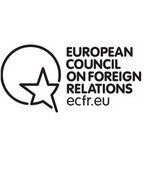
Vessela Tcherneva & Fredrik Wesslau
It has become a corridor, the route thousands of refugees take daily from Macedonia through Serbia to the border with Hungary and Croatia. Beyond that lie Slovenia and Austria and finally Germany and Sweden.
The route has become routine, with welcome centres in tents where refugees are counted and fingerprinted before they get on buses which take them several hundred kilometres northward. Close to 300,000 have crossed the Western Balkans since the beginning of the year; more than 6,000 now make this journey on a daily basis.
In the meantime, fences are being erected and borders are being closed. First Hungary started blocking refugees from entering. Then Croatia and Slovenia followed suit. Should Germany or Austria also resort to such measures, a growing number of people – tens of thousands – are likely to get trapped in the Western Balkans at the outset of winter. Today, Serbia's capacity can cater for only 800 refugees.
This humanitarian crisis is leading to rapidly deteriorating relations between the countries in the region, with politicians eagerly channelling long-veiled animosities and gaining electoral wins though rough exchanges with neighbours.
The mini-summit called by European Commission President Juncker last Sunday agreed on a 17-point plan but did not give answers to the two big questions: how to help guard borders along the Balkan route and how to pay for additional refugee shelters and registration centres. It also skirted around the question of relocating refugees stuck in the Western Balkans.
The article’s full-text is available here











